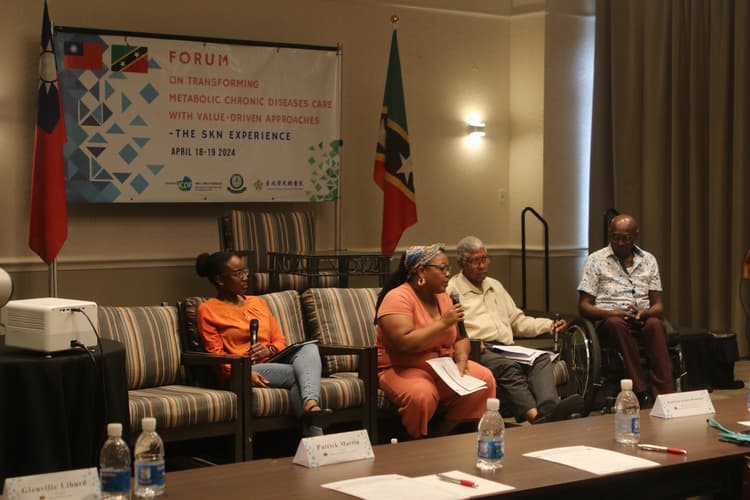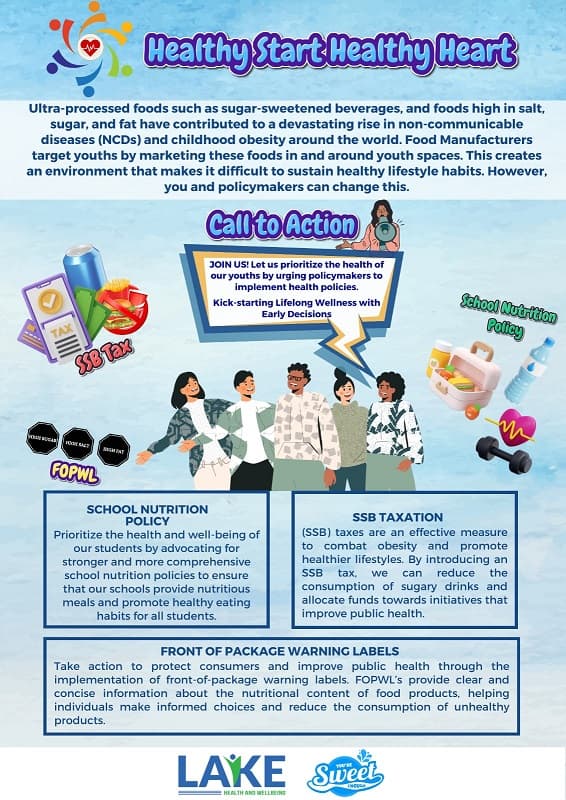You are sweet enough
Sugary Drinks: A public health threat
What are sugary drinks?
Sugar-sweetened beverages (SSBs) or sugary drinks are liquids sweetened with various forms of added sugars like brown, white or raw sugars, molasses, corn sweetener, syrups (corn, malt), fructose, dextrose, glucose, honey, lactose, maltose, and sucrose.
Examples of sugary drinks include sodas, fruit drinks, sports drinks, energy drinks, sweetened waters, coffee and tea beverages with added sugars, sweetened milk/milk alternatives, powdered juice mixes and drink mix syrups.
Why are sugary drinks harmful to our health?
Frequently drinking sugary drinks contributes to serious health problems like weight gain/obesity, the development of type 2 diabetes, heart disease, kidney diseases, non-alcoholic liver disease, tooth decay and cavities, and gout, a type of arthritis.
Did you know?
- Drinking just one 20-ounce bottle of a sugar-sweetened beverage per day can result in gaining 25 extra pounds per year.
- A child’s risk of becoming obese increases by 60% with each additional sugary drink consumed daily.
- Children who drink carbonated sugary drinks have almost double the risk of dental cavities.
- Women who drink one or more sugar-sweetened beverages daily have twice the risk of developing diabetes as those who drink less than one sugary drink daily.
Sugary drinks: A public health threat
The prevalence of obesity and diabetes in St. Kitts and Nevis is significant and concerning for the management of public health and wellbeing.
- In St. Kitts and Nevis, 30.1% of adult women and 15.3% of adult men live with obesity. This is higher than the regional average of 27.9% for women but lower than the regional average of 20.2% for men.
- Among adolescents and children in St. Kitts and Nevis, 32.5% of high school aged children are overweight and 14.4% are obese; 27.9% of children are overweight and 12.3% of children are obese.
- Diabetes affects 16.3% of adult women and 12.7% of adult men in the federation.
What should policymakers do?
To reduce the harmful health effects of sugary drink consumption is St. Kitts and Nevis, government should:
- Impose excise taxes on the manufacture, importation and sale of sugar-sweetened beverages to deter and reduce the purchase and consumption of SSBs.
- Ban the sale, promotion and marketing of SSBs in and around schools.
- Mandate warning/awareness labelling on SSB packaging to remind consumers of the harmful effects of drinking sugary beverages.
- Subsidize the installation of water fountains and standpipes in schools, around government buildings and in businesses to enable free access to drinking water as a healthy alternative to SSBs.
Share With :





